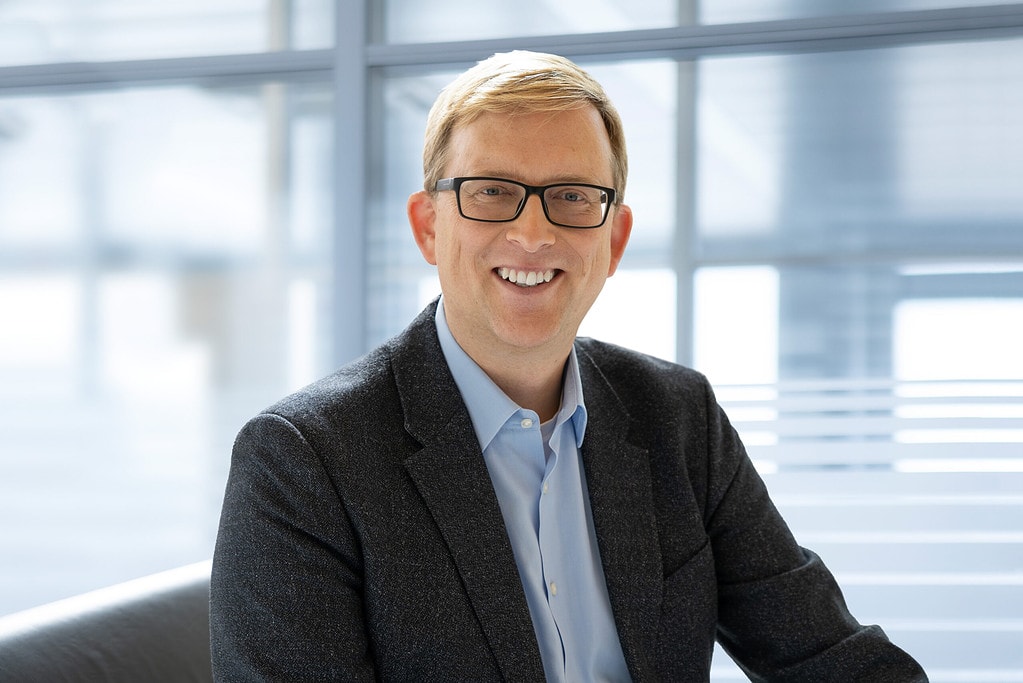

What is worth living for? A Japanese concept deals with precisely this question: Ikigai literally means "reason for living" or "meaning of life". It is a philosophy that aims to lead a fulfilled and meaningful life. According to the Ikigai philosophy, you can achieve this in a professional context by creating a connection between what you love, what you are good at, what you are paid for and what the world needs. For our interview partner of the month, this pursuit is one of the most important pillars of his career. Dr. Philip Nising is a chemical engineer by training who holds a doctorate in polymerization technology from the EPFL. He can look back on more than 10 years at Sulzer Chemtech AG, a globally active company in the chemical and process engineering industry.
In various positions at the company, he shaped the development of the Polymer Technology division and in 2016 moved to the BUSS AG as President and CEO. The medium-sized mechanical engineering company based in Pratteln is one of the leading manufacturers of high-quality compounding systems for the plastics industry. For over 75 years, the innovative compounding systems of the BUSS AG customers from a wide range of industries in the preparation of highly specialized new materials.
Philip Nising is in the middle of his working life. Looking to the future, he takes the Ikigai idea even further and believes that monetary success alone is not enough to lead a fulfilling and meaningful life. This is because professional success is fleeting, whereas a "legacy" endures. The word "legacy" can be translated as legacy, inheritance or footprint. How does one want to be perceived? What does one want to leave behind? It's about looking beyond one's current situation or current job and taking time to reflect on one's values, interests, passions and talents.
True to the mission statement "from success to significance", there is nothing more crucial for Philip Nising in terms of working life than creating a positive ambience in which everyone "gives" something, helps each other with professional and personal fulfillment, and has a positive influence on each other. So his answer to the question of what he would work for free comes as no surprise. Learn more about Philip Nising and his professional and private habits in the interview.
Mr. Nising, if you had taken a different path when you were younger, what would you have become?
"The chemical industry fascinated me very early on. Actually, I always wanted to work in production - the distillation columns and chemical plants in the Rhineland that were lit up at night had a great attraction for me. Later, I took the path of chemical engineering, so that one day I would be able to build and operate such plants. At that time, I probably wouldn't have wanted to imagine ending up in a medium-sized mechanical engineering company."
What is your favorite way to start your day?
"I enjoy spending time with my family over breakfast in the morning and taking the children on their way to school. Unfortunately, that works out far too rarely due to my heavy travel schedule. Also, a walk with our golden retriever at sunrise is a nice way to start the day, weather permitting."
What does success mean to you personally?
"I once heard that if you ask famous personalities of old age what is most important to them in life, their own "legacy" often comes as an answer. That is, what one creates as a (foot)print through one's actions and leaves behind at some point. Leaving a positive legacy would be a nice definition of success in life. In my opinion, you only achieve something like that if you give something to your environment - pass on your experience, maintain good interpersonal relationships and experience joy and happy moments together. Success for me is, above all, when you can help others to be successful."
What would you work for free for a week?
"Of course, 'working for free' can mean many things - and if I'm only doing a job for the money, it's hard to imagine working without pay. But it's not just for the money that I want to perform. And if I don't get paid for something I do, I still get something in return: the joy, fulfillment and pride of what I have achieved. In that respect, I could imagine many activities for which I don't need to be paid - including my current role. However, monetary reality would then quickly catch up with me, of course..."
What was the best professional advice you ever received?
"The most sensible advice I received at the beginning of my working life was that you should basically be happy with your job and make sure that you can also develop as a person, as a human being. This is not a matter of course for many people who only go to work for the money. In the end, one spends more time with one's job than with one's family, friends and even sleeping, from the beginning of one's school education until retirement. At least for my generation, this still seems normal and desirable - after all, you also give something to the community through your job and contribute to its development. With so much time spent at work, it's important that you enjoy it, find fulfillment ("feel success") and feel happy - with the challenges, the personal environment and the relationships with colleagues, customers, suppliers, etc. I have made this a kind of internal "mission statement" for myself."
We would like to express our sincere thanks to Mr. Nising for his contribution to this article.
This interview was conducted in writing.
Batterman Consulting Basel AG
Executive Search,
Byfangweg 1a, CH-4051 Basel
T +41 58 680 55 55
basel@batterman.ch